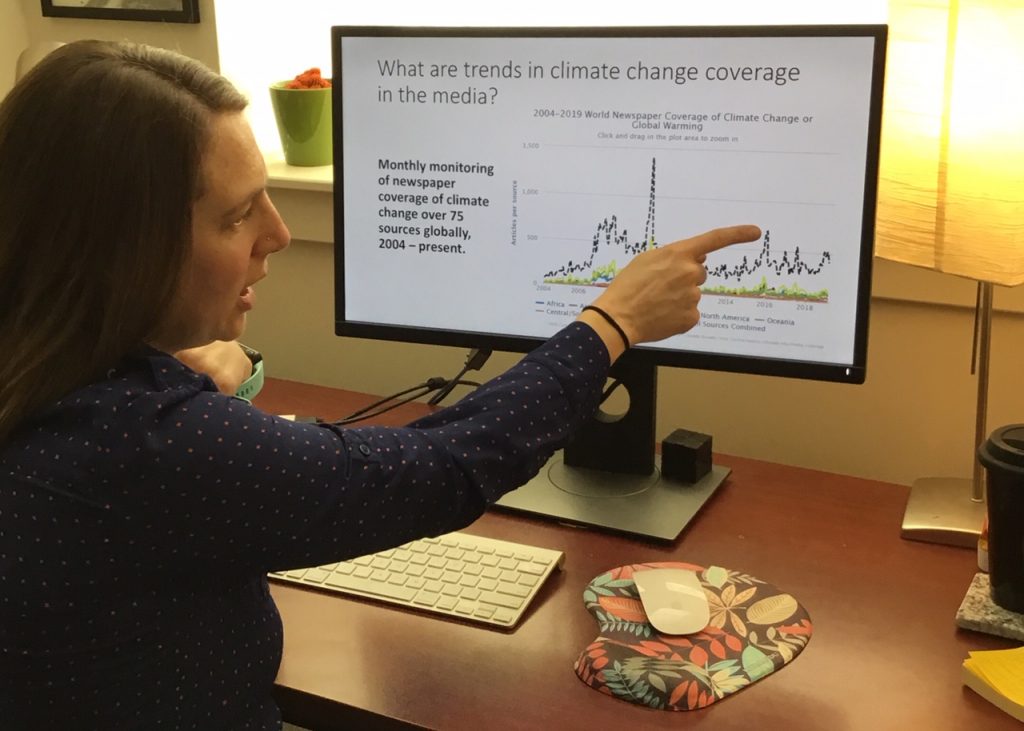
It is recognized that climate change will have significant impacts on human health around the globe – ranging from changes in the frequency of heat waves, to shifts in vector-borne diseases, to increasing food insecurity – with the worst of these impacts expected to affect already vulnerable populations. Yet, to date, little attention has been directed toward understanding broader relationships between climate change and health at the global scale, as well as how societies can respond to this growing risk.
To address this gap in knowledge, a group of 55 researchers, including Dr. Meaghan Daly, an assistant professor in Environmental Studies at the University of New England, have been working to systematically examine trends in climate change and human health. In December, the group authored the “2018 Report of the Lancet Countdown on Health and Climate Change” which was published in the medical journal, The Lancet.
The Lancet report is part of ongoing efforts by Daly and colleagues to assess climate change coverage in the media. Daly is a member of the Media and Climate Change Observatory (MeCCO) research group, which is based at the University of Colorado Boulder. The group monitors 79 media sources (across newspapers, radio and TV) in 39 countries to produce open access summaries and datasets assessing climate change media coverage on a monthly basis. The group’s work has been featured in over 100 news articles in 2018 alone.
Their contributions to the Lancet report specifically examined trends in newspaper coverage of climate change and health in 7 regions around the globe, as part of broader tracking of public and political engagement with climate change and health. The group found that media coverage of climate change and health is increasing globally, but that such trends are not observed equally across all regions. For example, Asia has seen a larger uptick in coverage than other regions. The report was included as one of the top-25 climate research papers featured in the media in 2018.
According to Daly, “this type of interdisciplinary and global collaboration is what is needed to understand the complex and growing impacts of climate change on human and societal well-being. It has been exciting to be part of such a diverse, international team to work on multiple facets of this vital issue.” Dr. Max Boykoff, Associate Professor in Environmental Studies at the University of Colorado Boulder and Principal Investigator for the project, noted that “climate change is not just an environmental issue, rather it is one involving science, policy, culture, psychology, environment and society. Confronting climate change and sustainability gets to the heart of how we live, work, play and relax in modern life. Media serve as critical bridges between public discourse and science-policy interactions regarding contemporary climate challenges.”
Daly and colleagues are currently conducting data collection and analysis to contribute toward an update of the 2017 report, which will be released in December 2019. Building on this work, Daly plans to teach a course on climate change and the media at UNE in the future, where students will create independent projects to analyze climate change media coverage data sets.
